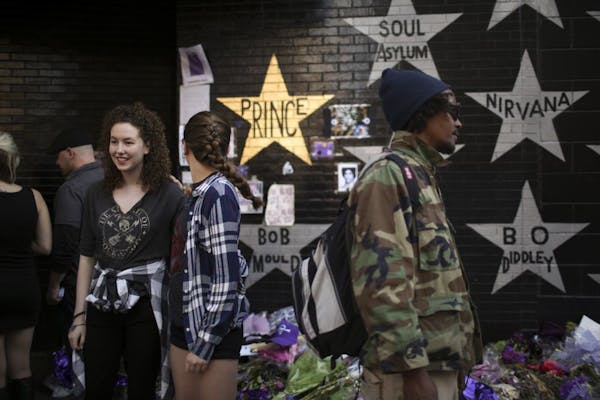The rise in opioid abuse that has afflicted everyone from pop stars to truck drivers drew heightened attention Friday from state and federal lawmakers in Minnesota.
Democratic Sen. Amy Klobuchar and a White House drug policy expert held a discussion with Minnesota medical and law enforcement officials at Hazelden's Plymouth campus, while state legislators advanced two measures to reduce misuse of addictive prescription opioids and increase access to emergency overdose treatment.
"This is one of the biggest public health crises we have faced in a very long time," said Michael Botticelli, White House director of national drug control policy, following Klobuchar's discussion.
Underscoring the concerns was a Minnesota Department of Health report, also released Friday, that showed startling increases in drug overdose deaths in the state.
The department said 572 Minnesotans died of drug overdoses last year, including 216 related to prescription opioid medications and 114 related to heroin. Drug overdose deaths in Minnesota have more than quadrupled in the past 15 years, the report showed, but those involving prescription or illicit opioids increased tenfold.
"With all the attention on this issue over the past several years, it's disappointing that we have not been more effective in slowing down this epidemic," said Dr. Edward Ehlinger, state health commissioner.
The state House on Friday unanimously passed a bill with two tactics to confront opioid misuse — one expanding the ability of pharmacists to prescribe and dispense Narcan, an antidote for opioid overdoses, and the other permitting Minnesota pharmacies to serve as volunteer collection sites for unwanted opioid medications.
"Through their voluntary actions, we will get a lot more opioids out of medicine cabinets" and away from people who might abuse them, said Rep. Bob Barrett, R-Taylors Falls, at a news conference in St. Paul.
Klobuchar had expressed concerns in the past that Minnesota wasn't among 40 states allowing pharmacies to serve as collection sites for unused opioids. She called opioid abuse a "unique American problem" because the country consumes 80 percent of the world's prescription opioids.
President Obama is expected to address opioid abuse in his radio address Saturday as well, Klobuchar said, and has recently called for $1.1 billion in additional federal funding for drug treatment.
Prescription opioids are also under investigation in the death of megastar Prince last month. Whether prescription drugs caused his death remains under investigation, but a week earlier his plane made an emergency landing in Moline, Ill., where Prince received emergency treatment for an overdose. Plans to get the celebrity musician into long-term treatment for opioid dependency were set to start the day he was found dead in an elevator at Paisley Park in Chanhassen.
Shelly Elkington was invited to Klobuchar's event to discuss the death of her 26-year-old daughter, Casey Jo Schulte, whose opioid addiction grew out of a long struggle with Crohn's disease. The Montevideo woman lamented the ease with which doctors provide opioids and patients accept them.
"This epidemic is man-made," Elkington said. "We need to own that."
Rep. Dave Baker, R-Willmar, also lost a child, his son, whose opioid use "quickly spun out of control" after a sports-related back injury. In addition to the two measures voted on Friday, Baker said he strongly supports a measure up for a House vote Monday that would require prescribers and pharmacists to create accounts on a prescription monitoring website operated by the state.
The site, operated by the Minnesota Board of Pharmacy, allows doctors to identify patients who might be "doctor shopping" to get prescription painkillers.
Right now, a minority of doctors, dentists and other prescribers use the site voluntarily. The legislation wouldn't require them to use the site, or check the drug histories of any patients, but having a login would at least give them the option if they had concerns.
"We're really happy that doctors have this tool," Baker said. "We are now making the doctors come to it."
Jeremy Olson • 612-673-7744

Fired Mpls. teacher accuses management of 'cancerous rot'

Jill Biden rallies women, teachers for the Biden-Harris ticket in Bloomington speeches
Neighbors, city officials at odds over Rochester lake dam

Souhan: This is KAT's chance to prove Flip Saunders was right

